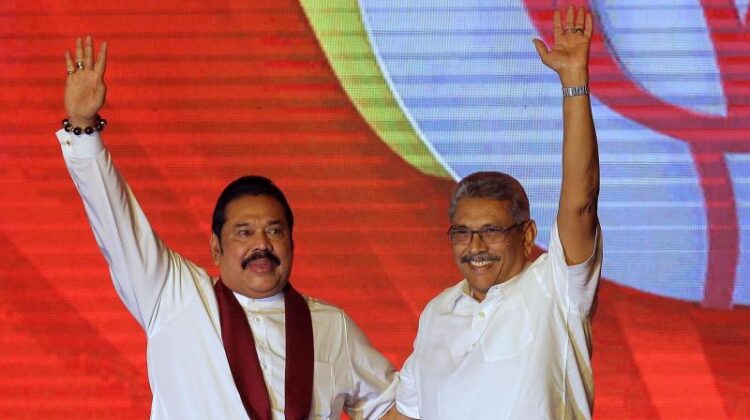The influential Rajapaksa family, politically sidelined during Sri Lanka’s severe economic crisis in 2022, is set to launch their bid for a comeback on Sunday, targeting the forthcoming elections. Former President Gotabaya Rajapaksa, ex-Prime Minister Mahinda Rajapaksa, and former Finance Minister Basil Rajapaksa were forced from power amid widespread anti-government protests.
The Sri Lanka People’s Front, commonly known by its Sinhalese name Sri Lanka Podujana Peramuna (SLPP), will hold a public rally in Thalawa, a north central rural town. This event will be inaugurated by Mahinda Rajapaksa and is aimed at mobilizing the party’s grassroots in preparation for upcoming elections, according to former minister and party member S.M. Chandrasena.
“We will start our campaign to gear the party for whatever the election that comes first,” Chandrasena told reporters. According to the Election Act, the presidential election should precede the parliamentary elections, with the next parliamentary election not due until August 2025.
President Ranil Wickremesinghe recently reiterated his intention to hold the presidential election this year ahead of the parliamentary elections. The SLPP, however, prefers the parliamentary election to take place before the scheduled 2025 date. Earlier this month, the Elections Commission announced that the presidential election would be held between September 17 and October 16.
While the SLPP has yet to announce its candidate, the two major opposition camps have already declared their presidential candidates. The SLPP retreated from public view after massive street protests began in early 2022, leading to the resignation of then-President Gotabaya Rajapaksa. The party was subsequently forced to elect arch-rival Wickremesinghe to serve the remainder of Gotabaya Rajapaksa’s term.
The political upheaval in 2022 resulted in the death of an SLPP Member of Parliament at the hands of an angry mob, and nearly 100 party leaders saw their properties set ablaze in a public outcry over the government’s handling of the economic crisis.

















Comments